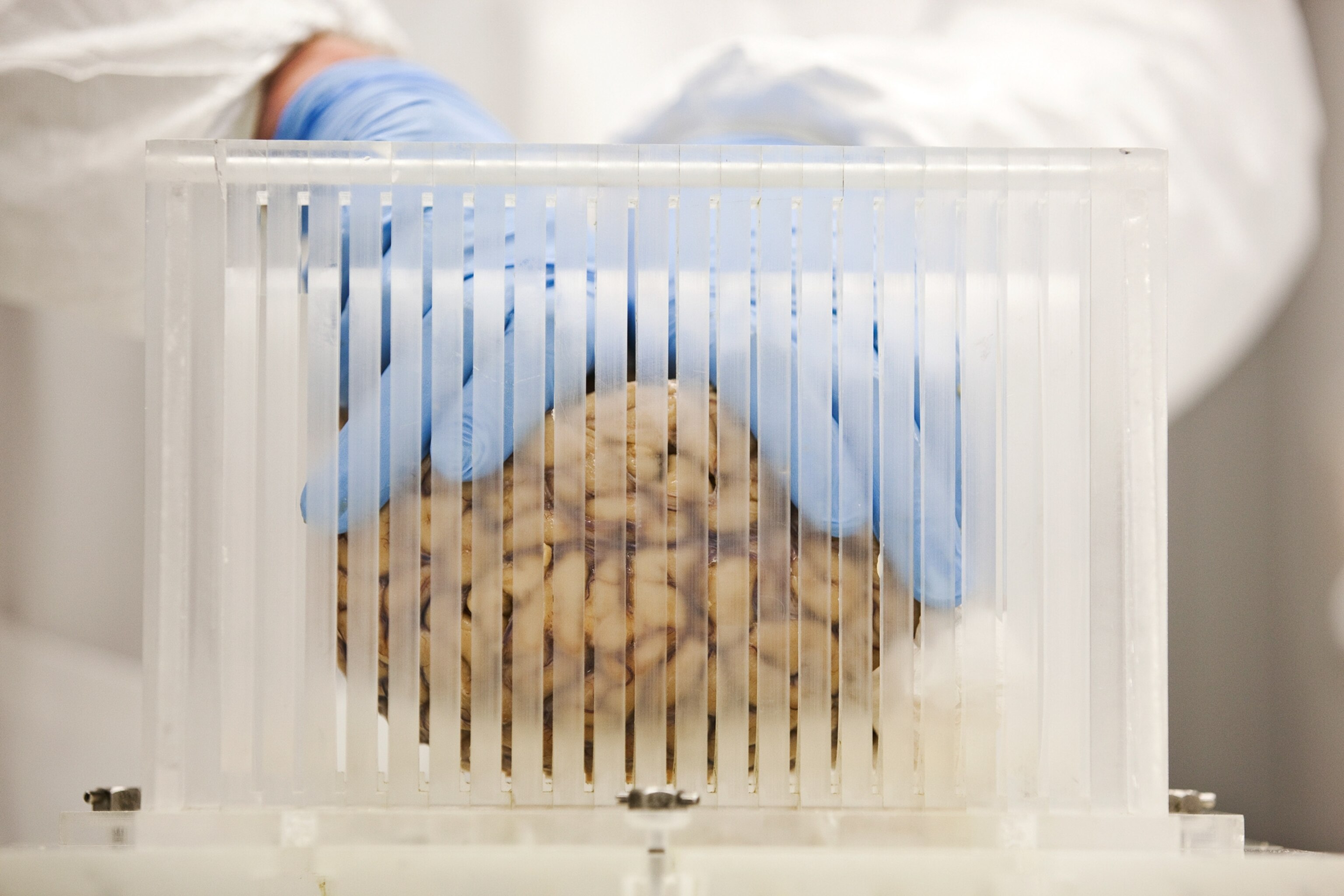
New Alzheimer's Research Holds Promise for Future
Studies are focusing on sleep, brain proteins, new drugs, lifestyle, and more.
Part of our weekly "In Focus" series—stepping back, looking closer.
Every week brings reports of research furthering our understanding of Alzheimer's disease, which affects more than five million Americans today. The number of patients is expected to grow as baby boomers age.
But applying these new findings to practical interventions to help patients already suffering cognitive impairment is tricky. "There are positive steps being taken in the field, but they are going to take years to come to fruition," says David Knopman, a neurologist and Alzheimer's disease specialist at the Mayo Clinic in Rochester, Minnesota.
Discovering ways to prevent or cure the disease will require much more research. Here are some of the studies that researchers hope will yield significant results:
Sleep and Alzheimer's
Earlier this month, a study by Maiken Nedergaard, a professor of neurosurgery at the University of Rochester in New York, and coauthors suggested that sleep can help the brain flush out and clear away damaging molecules, including beta-amyloid, whose sticky plaque formations are a hallmark of Alzheimer's.
The finding was in mice—not humans—but it provides a clue to "the brain's housekeeping" that is "really remarkable," potentially leading to ways to use sleep to improve amyloid clearance, says Randall Bateman, a professor of neurology at Washington University in St. Louis who was not involved in the study.
Other recent studies have suggested a link between sleep disorders and Alzheimer's. In one, researchers at New York University School of Medicine tied sleep apnea (also called sleep-disordered breathing) to indicators of very early Alzheimer's disease, as seen on neuroimaging and in the study subjects' cerebrospinal fluid.
Another study, by researchers from Johns Hopkins University, found an association between poor sleep and the buildup of amyloid plaque in the brain. So which came first: the sleep difficulty or the Alzheimer's indicators? No one knows yet.
Prevention
Studies have shown that Alzheimer's progresses in the brain for approximately 20 years before the all-too-familiar symptoms of cognitive decline and impairment become apparent and can be diagnosed, says Bateman.
"Not unlike cancer or heart disease, there is a long period in which there is nothing manifest, but the disease is present in presymptomatic and preclinical form," says Pierre Tariot, of the Banner Alzheimer's Institute in Phoenix.
The changes start with the buildup of clumps or plaques of beta-amyloid protein located on the outside borders of brain cells. After about ten years, the tau protein (located inside brain cells) starts to twist into tangles. Maybe another five years after that, "we detect the brain shrinking and becoming metabolically slowed," says Bateman. And there are still another five or so years before people notice clinical symptoms.
Today it's only after diagnosis that medications are available, and they are useful only to manage symptoms, not to reverse or cure them. "Trying to intervene in a process that has been going on for 20 years" is like coming in "late in the game, in the ninth inning," says Bateman. "When someone is in the dementia stage, it's not that we can't help," he continues, "but it's harder when neurons have died."
That is why researchers are trying to understand when the disease begins and what happens early on, says Dean Hartley, a director of the Alzheimer's Association. Scientists are working to identify possible biological markers, such as cerebrospinal fluid changes and presence of amyloid that they can track (for example, using PET scans). Additional studies are under way to develop neuro-imaging techniques to identify and monitor other brain changes associated with the disease.

Upcoming Trials
Early onset. Bateman's Dominantly Inherited Alzheimer Network Trials Unit (DIAN-TU) is recruiting participants who inherited a rare genetic mutation (present in less than one percent of the population) that increases risk for early onset Alzheimer's. Because symptoms can begin to show up when they are in their 30s, participants can be as young as 18. The trial will test three different drug interventions to see if they can remove or block plaque formation. Bateman says this study is "the first prevention trial in humans targeting beta-amyloid." Some initial results may be available within two years.
Late onset. At the Banner Alzheimer's Institute, Tariot and Eric Reiman are preparing to launch the Alzheimer's Prevention Initiative APOE4 Trial to test the efficacy of an anti-amyloid drug in a group of people genetically at higher risk for the far more common late-onset Alzheimer's. The study will seek to find out if the drug can help prevent or delay onset of symptoms and of memory and cognitive impairment.
Early signs. Another study will target older adults who are asymptomatic for Alzheimer's but whose brain scans show the presence of amyloid deposits, which appear early in the disease process. Reisa Sperling, director of the Center for Alzheimer's Research and Treatment at Brigham and Women's Hospital in Boston, will recruit a thousand volunteers to test a drug designed to clear amyloid from the brain.
In addition, various studies are investigating the role of lifestyle issues, including diet, exercise, and stress. Research is also ongoing to find interventions to improve functioning for those who already have the disease.
"There are many pathways to ending up with Alzheimer's disease," says Laurie Ryan, program director for Alzheimer's disease clinical trials at the National Institute on Aging. Eventually, "we're probably going to have multiple interventions," she says.
"The big picture is that we're not there yet, but there is so much going on, we are very hopeful," she continues. "We would like to be there now."
If you are interested in participating in a study, go to alz.org for more information.